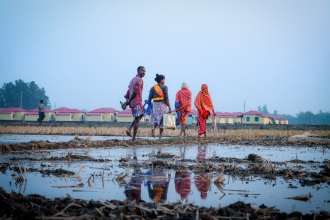Harnessing solar and wind for sustainable cross-border electricity trade in the Greater Mekong Subregion
Sustainable, low-emission electricity generation options are needed in the Greater Mekong Subregion, including for cross-border electricity trade. Large-scale investment in solar and wind power, together with off-river pumped hydro energy storage, is identified as a promising way forward. The GMS has many potential off-river pumped hydro sites. Actionable recommendations include greater use of bilateral power purchase agreements for cross-border solar and wind power supply, and potential development of a high-voltage direct current grid.


